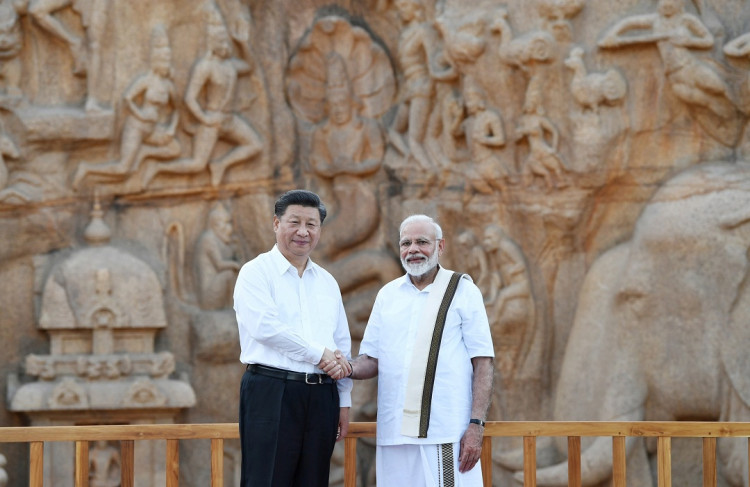China and India's military standoff has taken a toll on both countries' economies, with trade disruptions now the daily norm as Chinese imports continue to pile up in Indian ports and supply chains start to fray.
Many Chinese raw materials used by Indian companies, including pharmaceutical goods and mobile equipment and parts, have been blocked at India's main ports. The items have been deemed not worthy of clearance by Indian customs officials, exacting a toll on both countries' extensive supply chains.
The border clash between Chinese and Indian forces in June resulted in the deaths of 20 military personnel on both sides and has led to a diplomatic crisis and a cyber standoff, with the trading relationship at a new low. Indian companies that normally purchase a wide array of raw materials from China – especially pharmaceutical companies and smartphone makers – have felt the brunt of the crisis.
Incoming shipments have also been delayed and are directly impeding the entry of goods in both countries. Indian customs authorities have not justified the restraints. According to the chairman of India's Pharmaceutical Export Promotion Council, Dinesh Dua, there is no other source for the goods needed for the specific production of medical products. He also revealed that the standoff had caused concerns about continuing operations and the shut down of pharmaceutical factories due to the delay of imports.
Dua then suggested that if these companies do not receive the needed goods for production in time, more pharmaceutical companies will opt to shut down. Indian businesses are also worried that they might be victimized by the escalating trade tensions between the two countries. Earlier last month, the Indian government even announced a plan to increase tariff rates on Chinese goods that would substantially affect business operations of Indian production companies.
Attempts to secure a peace agreement between the two countries have so far failed. Both nations are also escalating tensions by engaging in online wars. India has banned 59 Chinese apps from operating in India, while China also restricted Indian companies from cyber platforms earlier.
A Global Times survey showed that China-India trade relations would not dwindle anytime soon. It has led to the poor performance of Chinese investments into India, while overseas direct investment (ODI) for Chinese companies experienced a 50 percent cut to its average values. FDI is also expected to shrink by 40 percent by the end of the year.
Experts noted that the deterioration is a sign that the Indian government still depends on higher ODI from Chinese investors. However, investor confidence of Chinese businesspeople has significantly decreased in a span of a month.






